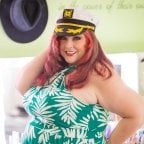I am not a doctor, but... (post-op diet progression)
-
Trending Products
-
Trending Topics
-

- 10,036 replies
- 1,027,040 views
-
-
Recent Status Updates
-
Three months and four days ago... I was in Costa Rica having a life changing surgery! Yesterday we had a followup visit with Dr. Esmeral via video chat and this morning my middle number changed. I'm down 47lbs and two pants sizes. I can wear a Large tshirt for the first time in like... 14 years! Woot!! Everything is going great. I have zero regrets. I went down to the riverwalk with a friend and walked 2 miles on Monday without even getting fatigued. And no more snoring or chugging pickle juice for crazy leg cramps! I need to go to the gym more... I'm making new shirts next week so that will motivate me. LOL But I'm also just not as TIRED all the time! I have a LONG way to go...but seeing the progress on the scales and in the mirror is a huge motivator!! Thank you all for cheering me on and supporting me!!· 0 replies
- This update has no replies.
-
Two months out from hiatal hernia repair. Surgeon said to expect a lot more flatulence...something about the 'air' no longer being able to 'burp' out so comes out the other end. That is my experience but have no understanding of why that swallowed air cannot be 'burped'. ???· 1 reply
-
As I understand it since your stomach is smaller and not completely resting against your diaphragm anymore you no longer have the ability to "push" burps out as well. Plus, since its smaller and we don't digest slower the trapped air moves a lot quicker out of the stomach so its no longer available to burp out. Hence the other option for removal.
-
-
Anyone had the TORe procedure? How did it go? How much weight did you loose?· 0 replies
- This update has no replies.



















